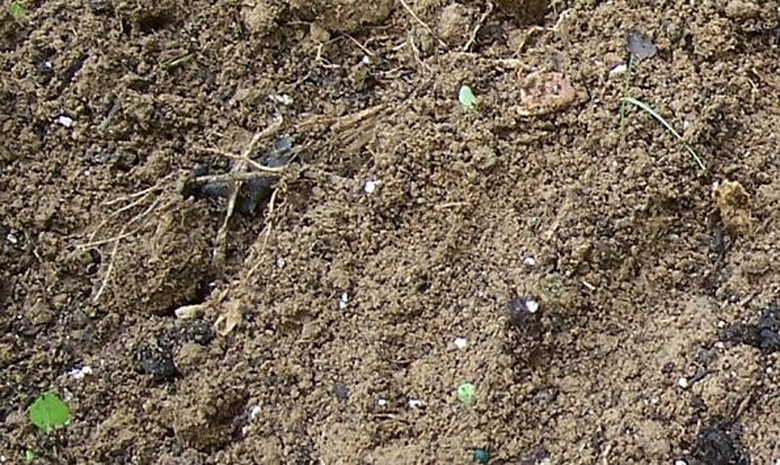What Types Of Soil Do Earthworms Prefer?
Gardeners know that earthworms are beneficial to the soil. But if a gardener wants to establish a population of earthworms in a newly prepared garden spot, what kind of soil will attract and keep them there? There are many species of earthworms at work underfoot, and most of them have similar needs for survival.
Facts
Facts
One acre of land may contain well over 1 million earthworms. Soil scientists have studied the effects of tilling on earthworm populations. They found that in agricultural conditions, shallow tillage increased the earthworm populations, while deep tilling decreased their population. The "no-till" methods are some of the healthiest options for earthworms, especially when coupled with organic or sustained-earth farming practices where soil building is the focus and few or no chemicals are used. Different species of worms responded differently to tillage practices.
Function
Function
Earthworms constantly till the soil as it passes through them. They "eat" the soil, removing nutrients they need from it and returning what remains in the form of "castings." Soil they eat is pulverized by their gizzards and mixed with organic matter. Minerals and nutrients processed by worms are in a form that is immediately available to plant roots.
Features
Features
Earthworms must be able to move through the soil easily. If soil is hard clay, or dry and compacted, they will go elsewhere to create their tunnels. A layer of ground surface litter–organic matter such as dead grass and leaves–will attract worms. This is the kind of food source they are drawn to. As they work through the layer, it is turned into fertile castings. Worms also carry the surface layer down with them through the next few inches of soil, mixing it together as they tunnel. This loosens and softens the deeper soil. Worm tunnels loosen the soil for water and roots, and in turn, water and roots keep the soil worm-friendly.
Moist soil with a layer of organic matter for nutrients will attract worms. The longer they work it, the more desirable the soil is for them to stay.
Worms need the darkness that deep, loose soil gives them. They actually become paralyzed if they are in the light for very long. Exposure above ground will also cause them to dehydrate rapidly and die. So worms favor compost piles and cool, moist areas under mulch.
Geography
Geography
Earthworms do not live in areas where conditions are not right for them. Temperature extremes as well as arid or swampy areas are not worm-friendly. Altitude also determines the species of worm that will live in an area.
Some of the earthworm species in the U.S. are known as "invasive" earthworms. They were brought from Europe many years ago, and have spread throughout North America.
Organic Matter
Organic Matter
One of the easiest ways to invite earthworms into the garden is to use organic matter as mulch. This layer will keep the soil cooler and will slow moisture evaporation. Organic mulch is food for earthworms, and so is compost mixed in or spread on top of the soil. A gardener who provides food and hospitable living conditions for earthworms will find plenty of them living in the soil.
References
Cite This Article
MLA
Fischer, Fern. "What Types Of Soil Do Earthworms Prefer?" sciencing.com, https://www.sciencing.com/what-types-of-soil-do-earthworms-prefer-12208431/. 27 August 2009.
APA
Fischer, Fern. (2009, August 27). What Types Of Soil Do Earthworms Prefer?. sciencing.com. Retrieved from https://www.sciencing.com/what-types-of-soil-do-earthworms-prefer-12208431/
Chicago
Fischer, Fern. What Types Of Soil Do Earthworms Prefer? last modified March 24, 2022. https://www.sciencing.com/what-types-of-soil-do-earthworms-prefer-12208431/
